The Massachusetts Manufacturing Extension Partnership, known more commonly as MassMEP, in December named Kimberly Ingalls as its new center director in Worcester. She replaced Kathie Mahoney, who served in the role for over two decades before moving on to a similar position in Rhode Island. Ingalls, who has worked with MassMEP in various capacities for over a decade, spoke with WBJ about who she is, what her role entails, and how the organization works to support area manufacturers.
Can you speak a bit about who you are and where you’re from?
I am a mom of two sons, a daughter and stepdaughter. I have a granddaughter and two grandsons. So, I’m very busy. I grew up in Western Massachusetts my entire life. Now I’ve been living in New Hampshire the last three years.
I first came to MassMEP in 2007, as a survey administrator. Later, I went into an administrative manager role, and an administrative director role. Now, I am the new center director at MassMEP. I’ve played a lot of roles at MassMEP, all of them I enjoy and love. It’s a great passion for me, and it keeps me sane, to be honest.
How did you connect with MassMEP in 2007?
When my kids were older and they were all back at school, I was lucky enough to have a good friend who said she was looking for an assistant. I worked as a recruiter in that position, and this came across my desk; and I ended up recruiting myself. I applied for it, and I got the job. I’ve been there ever since.
What does your job entail on a daily basis?
We are funded by the National Institute of Standards and Technology, which is called NIST. It is an umbrella nationally and funding partners for us. So I play a really close role with NIST and make sure we’re staying up to date with the upcoming initiatives.
I also focus on the grant funding with regard to the other centers, so we can collaborate together. MassMEP has worked with Virginia, New Jersey, Vermont and Rhode Island. Keeping those connections, staying closely related with other MEP centers is part of my role, as well as government reporting.
The center is my day to day.
As the director, do you have anything you would like to focus on?
I don’t think that goal changes. We always want to focus on maintaining the manufacturing industry, making sure we’re providing current solutions for any issues or struggles manufacturers have, right down to a value stream mapping archive or how we can help their workforce with workforce training, programs and initiatives. We always want to keep that in the forefront of our focus.
As center director, I always want to make sure we’re maintaining the center and our culture, and that everybody’s on the same page.
With your work in workforce development, do you have any thoughts about common misconceptions the public has about manufacturing?
There’s quite a few misconceptions, whether that be the idea manufacturing has outdated processes, that it’s dirty, that automation will replace workers — all of those are pretty common.
Automation isn’t necessarily a bad thing, because you meet people who can work on automations, and they’re just a newer thing. But a lot of people don’t think manufacturing is a viable career choice. So, at the younger level, we’ve done initiative training, presentations within schools, and we’ve had some really great responses from that.
Some people think manufacturing is a low-pay grade job, but that’s really not true. Some of these kids walk into positions making $22 an hour. This goes back to so long ago, with all the mills and the workers in the mills, so it’s very hard to break away from. So, we try to get that message out.
If area manufacturers want to make use of your resources, how should they get in touch?
They could absolutely call our office and leave a message. There’s also a form on our website that’s watched 24/7. If you have any questions for anybody on the leadership team, please reach out to any of us.
We want to be their service provider and their trusted adviser. We certainly want to make sure we’re there to help them with any questions. Nothing is too small of a question for us.
This interview was conducted and edited for length and clarity by WBJ Staff Writer Monica Busch.


